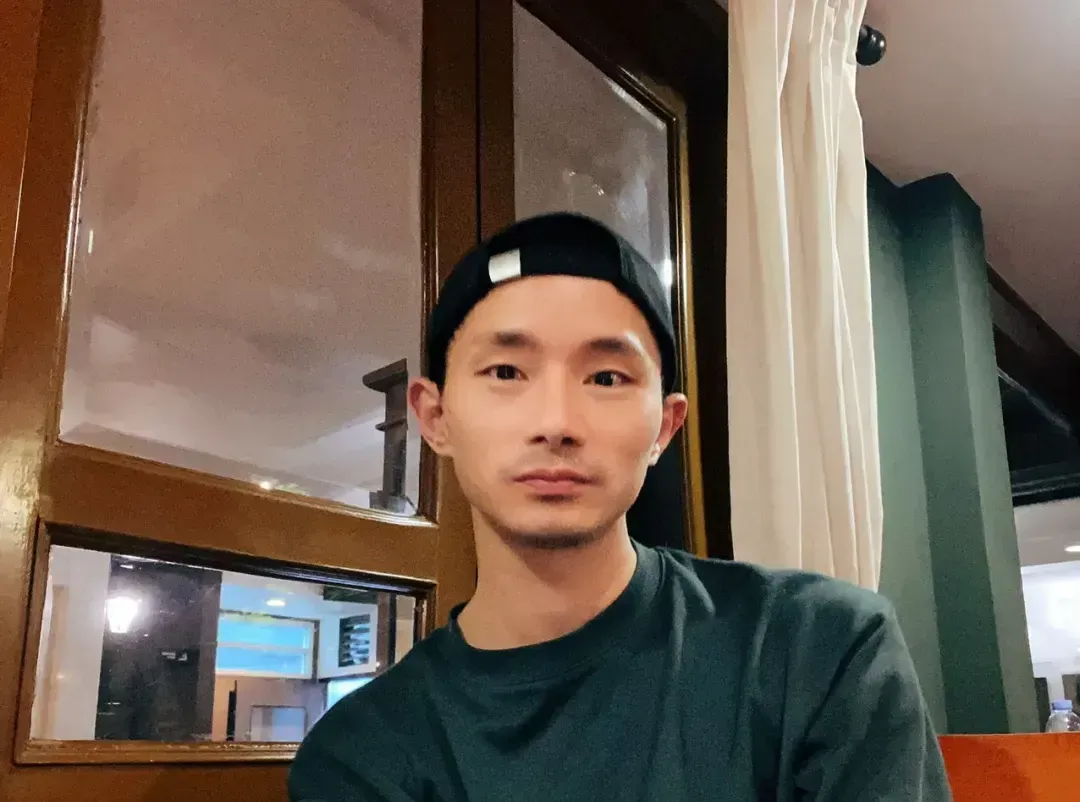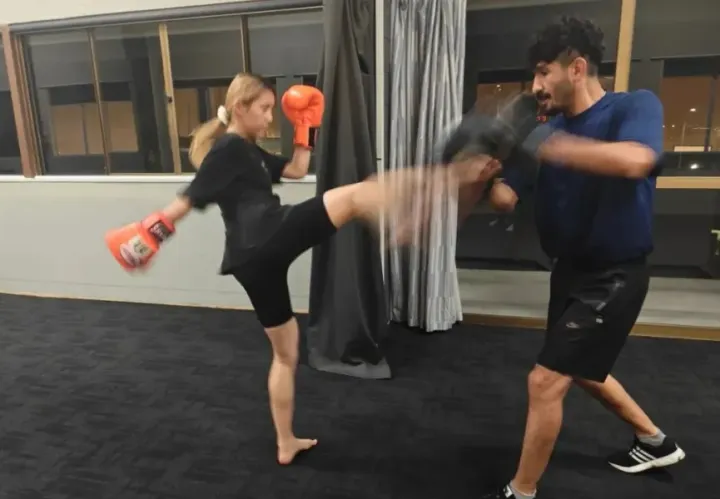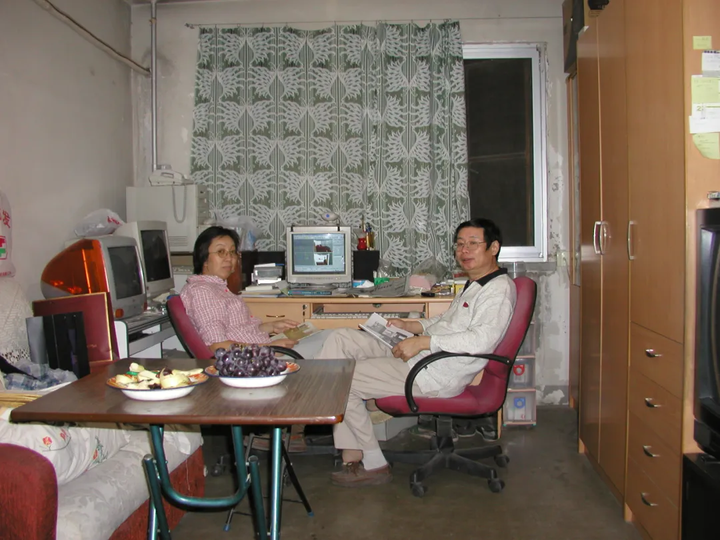"My PR was earned one diaper at a time"

Staff Writer: Yima
Image Source: Supplied
In a discussion post titled "How did you get your New Zealand residency?"
One comment received the highest number of likes: "I studied early childhood education, and my PR (Permanent Residency)was earned one diaper at a time."
Anhui: Childhood in the Mountain Village
Vincent is from Wuwei, Anhui, and is now 38 years old, working as an early childhood teacher in Auckland.
He was born into a typical rural family, the fifth of five children.
He spent his entire childhood in the mountain village. When he was in middle school, he had to climb two mountains every day just to get to school.
He recalls those mornings when he would wake up, start the journey under the starlit sky, and by the time he crossed the first mountain, the sun would rise—its gentle red glow emerging from the mist over Zhusi Lake and illuminating the tea-covered hills. It is one of his most unforgettable memories of sunrises.

Vincent’s parents were not highly educated. His father could read and write a little, but his mother never attended school.
In his early years, his father ran a bamboo business, and his mother was thrifty and hardworking.
At first, life was decent, but when his father's business failed, the family fell into hardship. His entire youth was marked by financial struggle.

He said that as a child, there were very few books for him to read. It wasn’t until he began high school in the county town that he first encountered literary works.
When asked about his favorite activity during childhood in the mountains, he answered: picking tea.
As a child, he would pick tea leaves in the bamboo forest. Because the tea was wild, he had to climb over the mountains to find each tea tree. When he reached the top, looking out at the endless small hills folding into the larger mountains, he would often get lost in thought, wondering what lay beyond those mountains.
The villagers, seeing how studious he was, would jokingly call him a "university student." He had many questions: If middle school meant going beyond the mountains, and high school meant going to the county, then where would university be?
As a young boy, he would sometimes believe the joke that to attend university, he would have to find the necessary books in the bamboo forest. In many of his childhood dreams, he was searching for the books needed to attend university in those woods.
Although Vincent was diligent and eager to learn, he didn’t perform well on the college entrance exam.
When it came time to fill out his application, he called a literate relative for advice. On the phone, the relative asked, "Didn’t the people say you’ve already applied to Peking University? How come you haven’t?"
Standing on the fourth floor of his school building, Vincent found himself caught between laughing and crying.
In the end, he just randomly selected a few schools on his application.
Chongqing: Four Years University Time
At 18, Vincent entered Sichuan International Studies University for college. The school was in Chongqing, he always liked to add.
It was also that year when he tasted a real kiwi fruit for the first time.
Growing up in the mountains, he had eaten wild fruits from the hills behind his home, but he never realized they were wild kiwis.
Many new experiences, like that kiwi fruit, suddenly entered his life.
University life passed in a blur over those four years.
"By the time graduation came, it seemed like everyone had their future sorted out. I felt like I had been suddenly shoved into society".

Beijing: Seven Tears Work
During his school years, his grades were consistently good, and he passed all the necessary exams and certifications smoothly, completing his studies without much trouble.
But after graduation, reality hit hard when he started looking for work.
“I thought I had done enough, but I hadn’t. Almost everyone around me had someone to guide them or a clear path forward, but I didn’t. I stood at the crossroads, unsure how to take the next step in life. I couldn’t even cry.
“You know, my family had already given everything. They had sold two pieces of farmland and even the family homestead to support me this far.
“And now, I didn’t even know what I wanted to do.”

He laughed bitterly as he recalled, “My father used his connections to get me a job at a hotel in Beijing. When I got there, they said the front desk didn’t need anyone, but the housekeeping department did. After three or four days of making beds, I quit on my own.”
Later, by chance, he found a job teaching English at an institute, and he stayed in that role for seven years.
Those seven years were relatively easy; the salary was decent, and he had a lot of free time.
In 2016, he lost a significant amount of money in the stock market, which left him feeling down.
One day, as he looked at himself in the mirror, he realized that he couldn’t go on like that. Letting a financial loss affect his life so deeply wasn’t the way he wanted to live.
Disillusioned, he thought: "Why not change places and start fresh?"
As for where to go, he didn’t have a clear plan. A longtime online friend lived in New Zealand, so he thought, "Why not New Zealand?" At that time, he barely had enough money to get there.
Auckland: Starting a New Journey as a Student
Once he made up his mind to go abroad, he began studying hard for the IELTS, and after getting the required scores, he applied to schools.
That friend in New Zealand helped him with the application process, and after receiving an offer from the University of Auckland to study early childhood education (ECE), he moved to New Zealand.
He arrived on a Friday, landing in Auckland on Saturday, and by Monday morning, he was attending the university’s orientation. His new life in a foreign country had officially begun.
Before starting ECE, he hadn’t realized why the language requirements for this program were so high. But after a month of classes, he understood why it made sense.

The workload was intense, and the pressure of writing essays nearly pushed him to drop out. He vented to a friend, saying, “I thought ECE was supposed to be fun, but I didn’t expect this.”
Instead of comfort, his friend offered a different kind of advice :“Let me recommend some anti-anxiety medication; it works great. Lots of students take it while writing papers…”
He later realized that this was quite common among ECE students. His classmates often cried while working on assignments. Despite the difficulties, he knew this was his one chance, so he gritted his teeth and pushed through.
He managed to graduate, but he was so exhausted that after graduation, he returned to China for a three-month break before coming back to New Zealand to look for work.
Wellington :The Life of a Male Early Childhood Educator
With a local degree in hand, Vincent’s career as an early childhood educator in New Zealand began.
Years earlier, a friend had overheard gossip in his village, with people mockingly saying that Vincent was working as a kindergarten teacher in Beijing. The friend stood up for him :“You’re teaching adults, how can they say you’re a kindergarten teacher?” Little did they know that, years later, that joke would come true.

Vincent was about to become an early childhood teacher in New Zealand. If people in his village knew, they might say," So the university degree was wasted? Even after going abroad, you’re just a kindergarten teacher?"
In New Zealand, the requirements for becoming an early childhood teacher are quite high. Just for English , IELTS scores of 7 or above in all four areas are needed, a score high enough to apply to any prestigious university in the world.
According to 2019 data, only about 2.4% of early childhood teachers in New Zealand are male (around 750 out of 31,400). As reported by Stuff, New Zealand has one of the lowest percentages of male early childhood teachers among developed countries.
Given the high demands and challenges of the profession, few people enter and stick with the field, especially men. As a result, male early childhood educators are rare, making it relatively easy for Vincent to find a job after graduation.
At the time, New Zealand's skilled immigration policy required 160 points, and to score higher, Vincent decided to leave Auckland and find work in other regions.
Through a friend's recommendation, he landed a job at a kindergarten in Wellington and became an early childhood educator.
He worked hard, not only doing his eight-hour shifts at the kindergarten but also taking on part-time jobs teaching English and doing purchasing for others. That’s when he started earning his PR “one diaper at a time.”
At the kindergarten, there were times when there were as many as 38 children, aged two to three, with only four teachers. On average, each teacher had to take turns changing all the children's diapers.
“At first, as a new teacher, I didn’t know how to do it efficiently. After one round of diaper changes, my back would be so sore I couldn’t stand up straight. Sometimes, there were kids who were hard to handle, throwing tantrums on the floor and refusing to cooperate. After work, I’d have to lie on the floor for an hour before I could get up to make dinner.”

But he said that changing diapers wasn’t the hardest part of the job. Once he got used to it, diaper changes were the easiest physical task. The real challenges were the mental work and navigating relationships.
When asked about the most challenging part of the job, he said :“The hardest part is rainy days. When the weather is good, the kids can go outside, but when it’s bad, they’re all stuck in the classroom, and things quickly get chaotic. Managing 20 students is hard, but managing 40 feels exponentially harder.”
Despite the challenges, he enjoyed his work and found a sense of accomplishment and belonging in it.
Each child has a unique personality, and for children in their formative years, they change every day. “Watching a kid grow and being part of that process is incredible.”
He described it as a magical experience, seeing children gradually develop self-awareness and distinct personalities and witnessing the miracle of life.
Sometimes, when he encountered difficult adults, Vincent would joke to himself, “Didn’t they go to kindergarten”?
New Zealand kindergartens place a strong emphasis on emotional education, spending a lot of time teaching children to understand and manage their emotions.
Whether it was during short-term internships or long-term jobs, Vincent built deep connections with his colleagues and the children.
At the end of one internship, the local teacher brought out a guitar and led Vincent and the children outside to sing songs under the trees. They spent the entire afternoon simply enjoying the gentle breeze and the Samoan teacher’s lullabies.
“New Zealand places great importance on farewell rituals, and children learn how to say goodbye starting from kindergarten.”
Kindergarten teachers also focus on each child's individual development and don’t expect every child to progress at the same pace.
In New Zealand, children move to a senior class when they turn three, so classes are always changing, and children have to learn to say goodbye to their classmates.
Auckland: Starting Over, and Then What?
Now in his sixth year as an early childhood teacher, Vincent has become a senior teacher, managing his work with ease. During this time, he’s received many inquiries from people asking about the pros and cons of studying early childhood education.
For those looking to immigrate, early childhood education in New Zealand can indeed be a good option.

According to immigration regulations, applicants who register with the Teaching Council of Aotearoa New Zealand and obtain a provisional practicing certificate can apply for permanent residency after working in a registered early childhood teaching position for 24 months, as long as they earn at least the median wage.
Vincent is always candid when asked about the profession. “If someone sees early childhood education as just a means to get residency but has no interest in education, it will be a miserable experience.” From studying to working and eventually gaining residency, the process takes a long time.
If you’re not passionate about education, going to work every day will feel like a burden, and it’s unfair not only to the students but also to yourself.
Fortunately, Vincent has always enjoyed the education field and has a genuine love for his students. Doing what he loves naturally led to him obtaining residency.
“Getting residency wasn’t my original goal. When I first decided to go abroad, I just wanted to see the world. I never dared to imagine getting residency. Maybe it was this relaxed mindset that led to my success.”
Many early childhood teachers switch careers after obtaining residency, but Vincent continues to work in the field.
He now has a full-time job as an early childhood teacher and also teaches IELTS online, keeping his schedule packed. As he puts it :“It’s been seven years, and I haven’t taken much time off, nor have I gotten rich.”
He spends his free time playing badminton, hiking, and visiting parks.
“While this may not be the life I dreamed of, I can’t complain. At least it’s comfortable and secure,” he said.
Acting without seeking a specific goal, not treating what one does in the present as a means to an end. He is his own value, and he is his own purpose.
What he does is what he loves to do, and naturally, he becomes the most unique version of himself.




